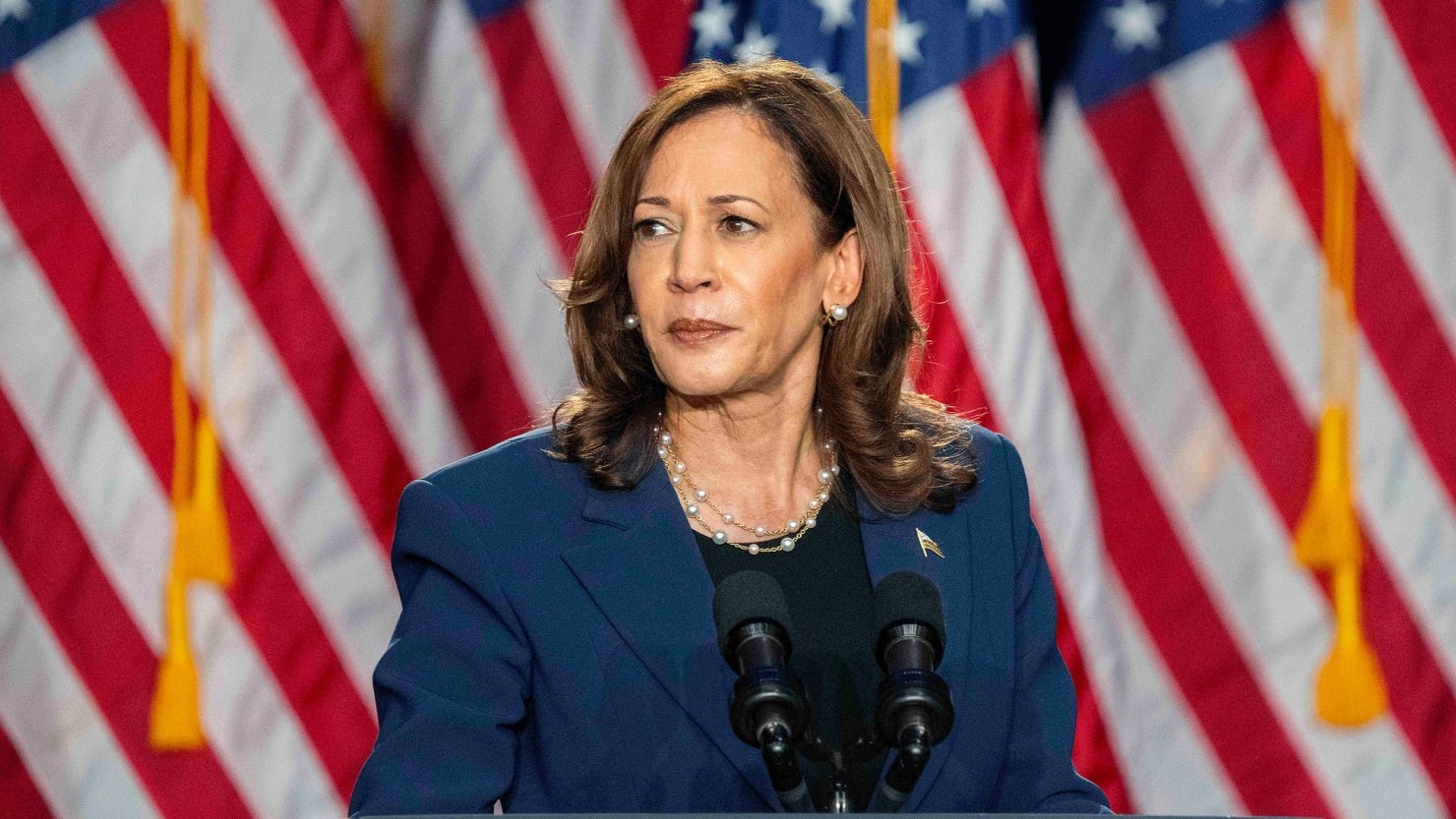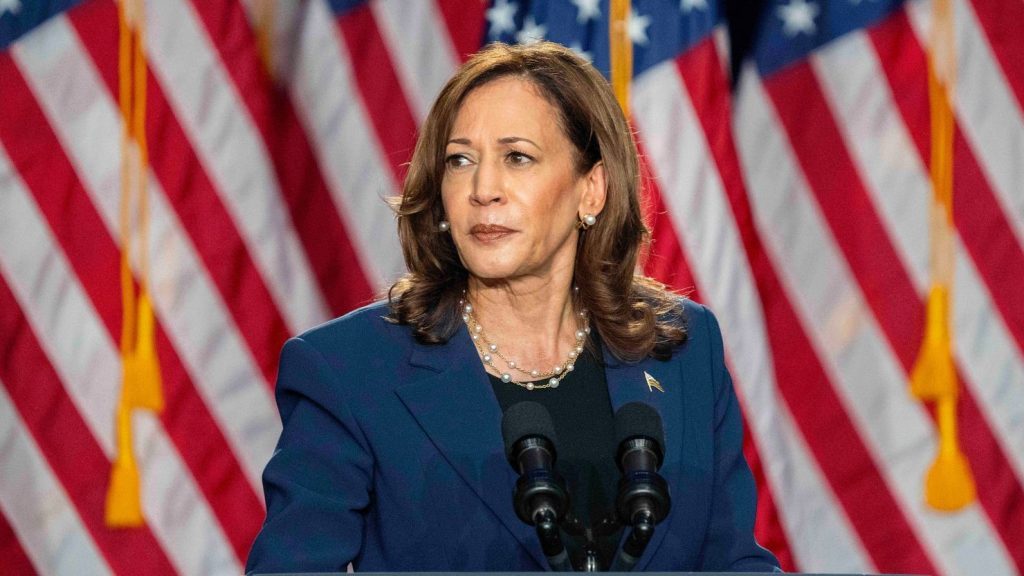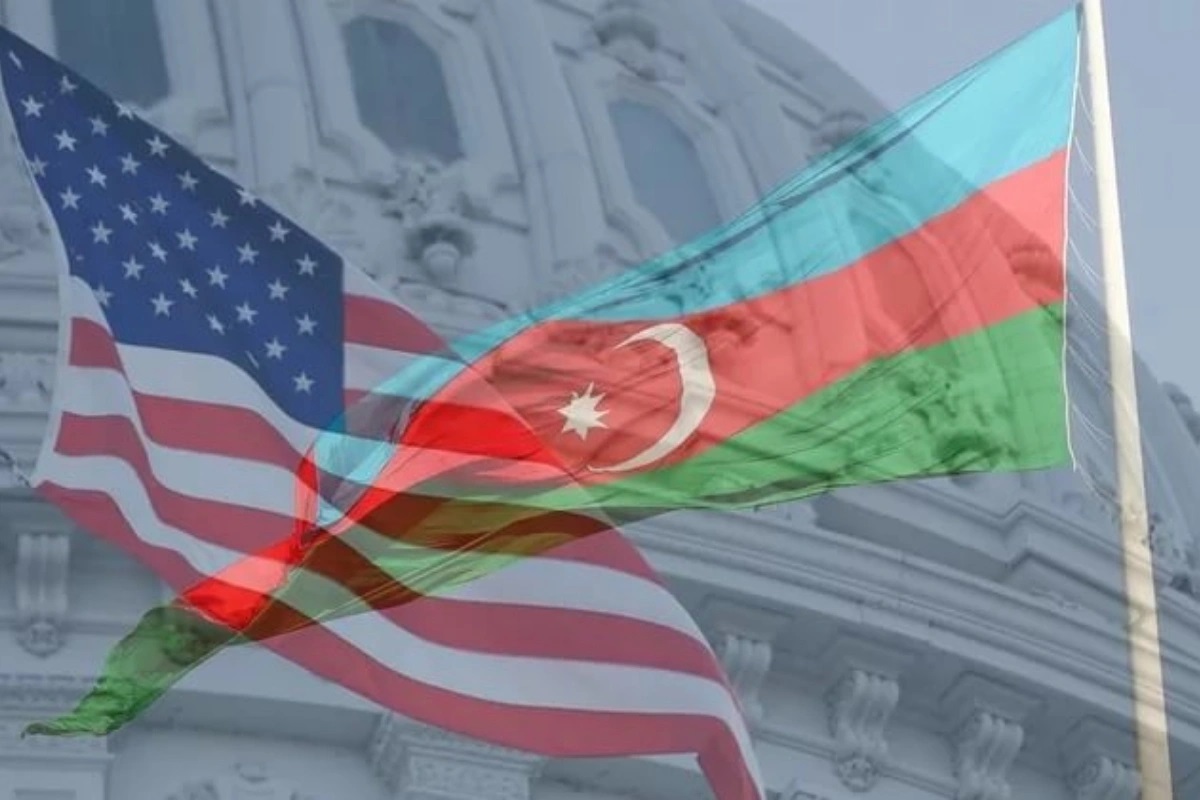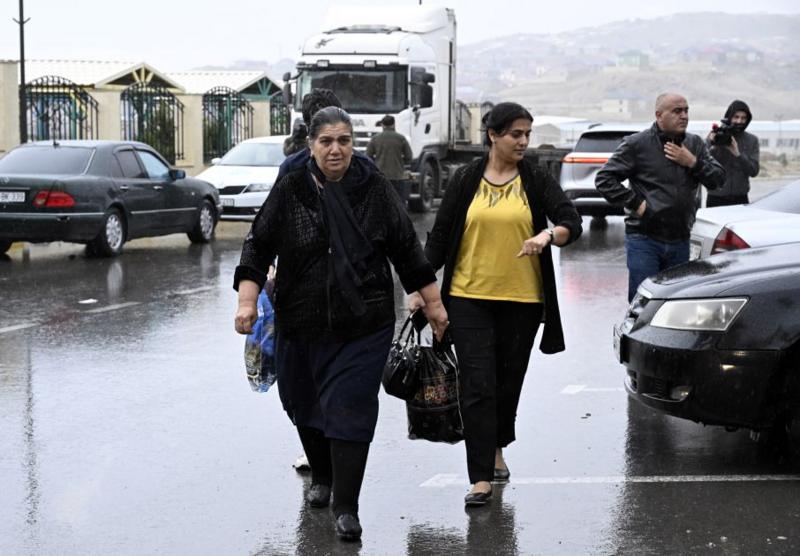
Harris on the return of Karabakh Armenians
U.S. vice president Kamala Harris’s address to Armenian-Americans has sparked discussion in Azerbaijan. She stated, “The right for Armenians displaced from Nagorno-Karabakh to return safely to their homes is vital to restoring dignity to the Armenian people and stability to the region.”
The “Western Azerbaijan Community” expressed outrage over her remarks. Meanwhile, experts from the “Look to the East” think that comparing the right to return and property of the Western Azerbaijani community with those of the Karabakh Armenians could form a basis for resolving the issue at the intergovernmental level.

- A portrait of Shamil Basayev was displayed in an Abkhazian museum. After outrage from Russia, the exhibition was closed
- “US gives time to Georgian government.” Political analyst on sanctions against Ivanishvili
- How BRICS can influence transportation corridors in the South Caucasus: A perspective from Baku
What happened?
U.S. vice president and Democratic presidential candidate Kamala Harris reaffirmed her commitment to a lasting peace between Armenia and its neighbors in a message to the Armenian community in the United States on Armenia’s Independence Day.
In her letter published on September 24, Harris emphasized her dedication to lasting peace in the South Caucasus region:
“I remain committed to a lasting peace between Armenia and its neighbors that respects sovereignty, independence, and territorial integrity,” she said in a statement publicized by the Armenian National Committee of America (ANCA) on Tuesday. “The right for Armenians displaced from Nagorno-Karabakh to return safely to their homes is vital to restoring dignity to the Armenian people and stability to the region,” she stated.
Azerbaijani refugees from Armenia outraged
These remarks by U.S. vice president Kamala Harris provoked a negative reaction from the “Community of Western Azerbaijan” (the community of refugees from Armenia who left their homes in the late 1980s at the onset of the Armenia-Azerbaijan conflict), which contested the use of the term “Nagorno-Karabakh.”
“There is no region called ‘Nagorno-Karabakh’ in Azerbaijan. The use of this term, associated with separatism and occupation, is a disrespect to Azerbaijan’s territorial integrity and sovereignty,” the community stated.
The Community further criticized Harris for using “discriminatory language,” emphasizing that her focus on the right to return solely for ethnic Armenians ignores the plight of Azerbaijanis expelled from Armenia.
“The right of Azerbaijanis expelled from Western Azerbaijan to return to their homes is a prerequisite for establishing justice and lasting peace. The vice president’s disregard for the right of Western Azerbaijanis to return does not contribute to peace and is wrong,” they noted.
The Community urged Harris to “respect the right of Western Azerbaijanis to return to their homes safely and with dignity, and to avoid discrimination based on ethnicity or religion regarding the right to return.”
“Kamala Harris’s statement aimed at Armenian votes in the U.S.”
Experts from the analytical center “East View” believe that Kamala Harris’s statement was intended to garner support from Armenians in the United States:
“In the statement from the campaign of the sitting U.S. vice p resident and Democratic presidential candidate Kamala Harris on the occasion of Armenia’s Independence Day, the right of Armenians displaced from Karabakh to return to their homes was presented as a crucial factor for the dignity of the Armenian people and stability in the region.
It is evident that this statement from Harris’s campaign was aimed at attracting Armenian votes in the U.S. This is clear. However, the right of Armenians to return to Karabakh is not just rhetoric; it is a topic that may become increasingly relevant. Addressing this issue in Harris’s statement shows that the Armenian lobby in the U.S. is actively working on this matter in Washington.
Currently, the Armenian leadership remains silent on this topic, as Pashinyan perceives issues that strengthen Karabakh Armenians and bring them to the forefront as a threat to his power. If Pashinyan is overthrown, a new government in Yerevan, supported by the Armenian lobby, could easily promote the right of Karabakh Armenians to return, both in the West and in Russia. One of the likely reasons the OSCE Minsk Group has not been disbanded is to keep the right of Karabakh Armenians’ return relevant for the future.”
As Armenia draws closer to the West, European institutions will likely intensify pressure and demands on Azerbaijan regarding issues such as property rights and the return of Karabakh Armenians. Christian religious sites in Karabakh are already frequently referenced with headlines like “churches under the feet of Muslims.”
The right to return for the Western Azerbaijan community has been highlighted in response to the situation concerning Karabakh Armenians from the Azerbaijani side. However, this move is also based on the principle of reciprocity and could politically facilitate resolution in the best-case scenario. In other words, the rights to return and property for the Western Azerbaijan community do not negate the rights of Karabakh Armenians to return and own property. It is possible that establishing reciprocity on this issue may create a foundation for resolution based on an intergovernmental agreement, analysts suggest.



